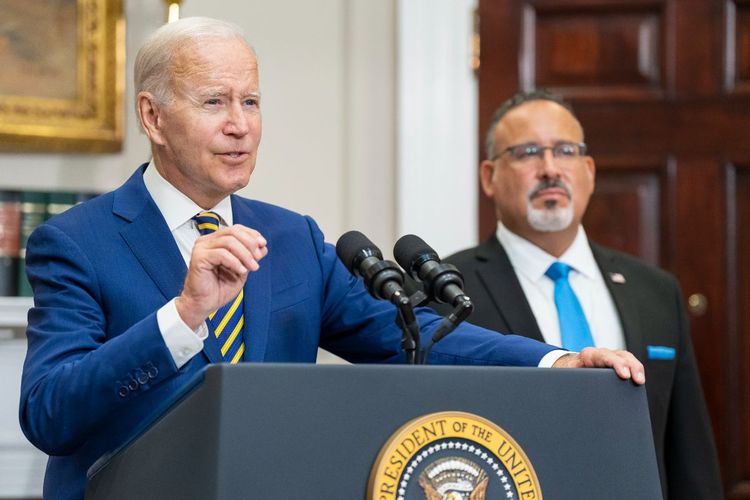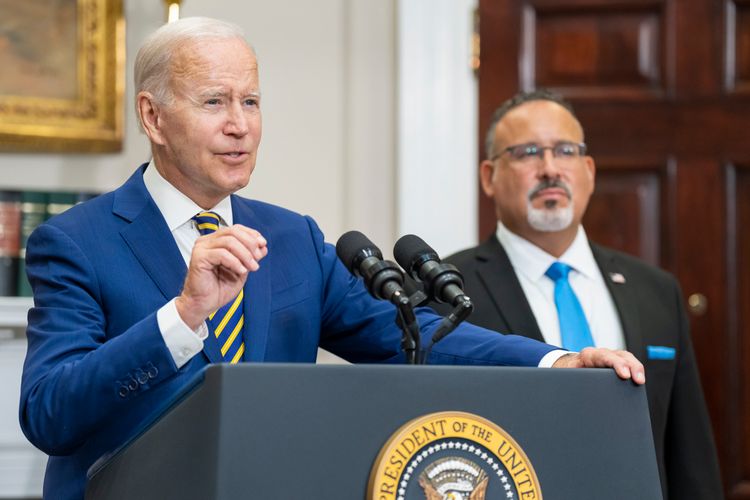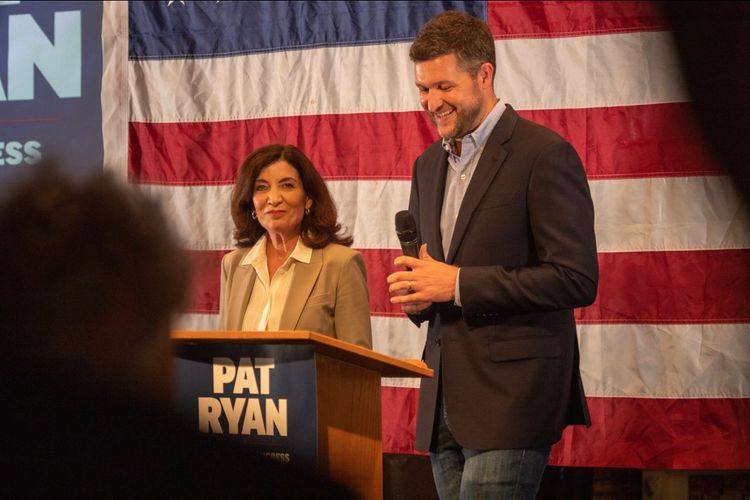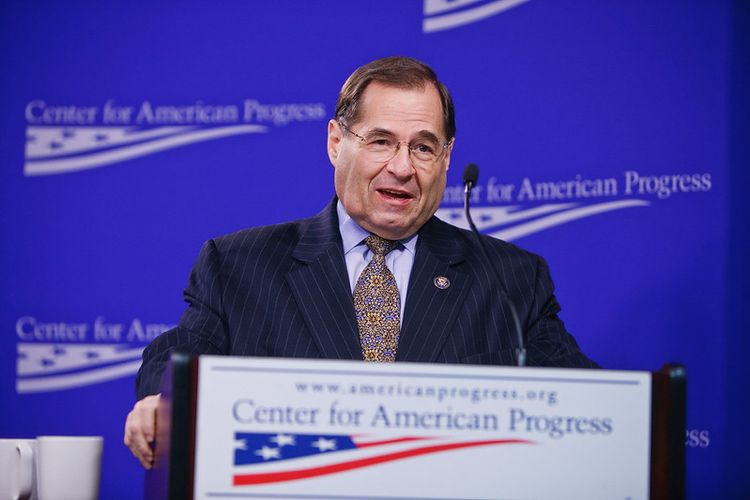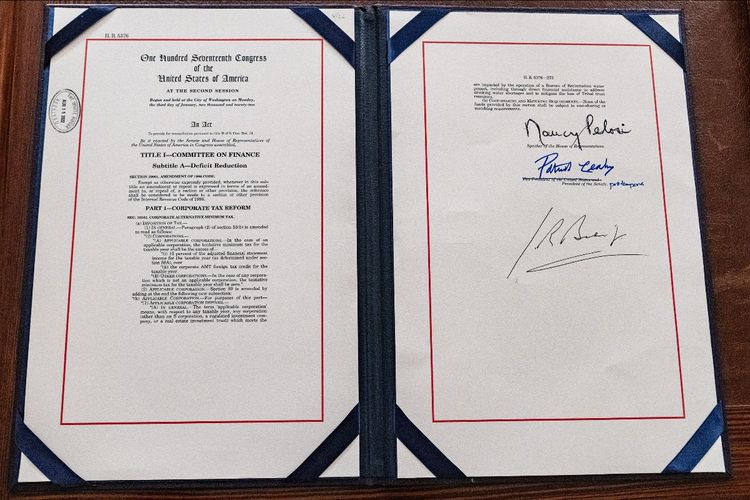Wake Up To Politics - April 16, 2021
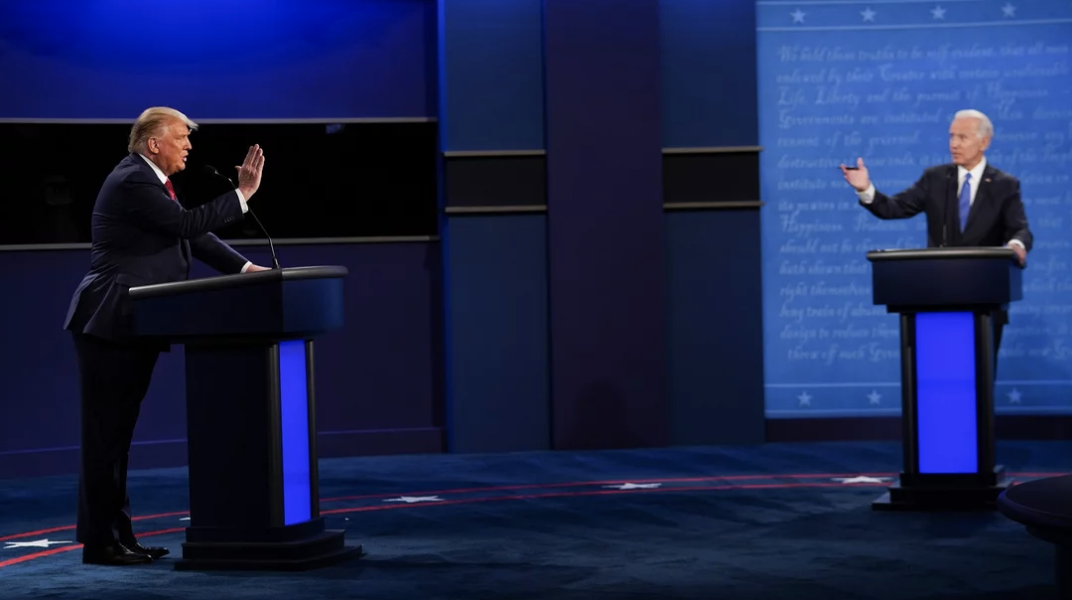
Good morning! It’s Friday, April 16, 2021. Election Day 2022 is 571 days away. Election Day 2024 is 1,299 days away.
Breaking: A gunman opened fire at a FedEx facility in Indianapolis late Thursday night, killing eight people and then himself. It is the latest in a string of mass shootings to take place in the United States in recent weeks.
In this morning’s newsletter: An analysis on one aspect of President Joe Biden’s time in office as he approaches the 100-day mark...
Analysis: Nearing 100 days, Biden relinquishes the presidency of our minds
“America’s present need is not heroics, but healings; not nostrums, but normalcy; not revolution, but restoration; not agitation, but adjustment; not surgery but serenity; not the dramatic, but the dispassionate...”
Although it may sound like it, those words were not Joe Biden’s from his 2020 presidential campaign. Instead, they were spoken by Warren Harding in his 1920 bid for the White House exactly 100 years before. But the core of Harding’s message — crystallized in his slogan “return to normalcy” — sounds positively Bidenesque.
The similarities aren’t accidental (and go beyond just being elected in years ending in 20). Both Harding and Biden were running in the context of the action-packed terms of their predecessors, both of which featured nationwide pandemics that rocked the country. Those predecessors also shared expansive views of the presidency: Harding took over from Woodrow Wilson, who was known for his sweeping theory of executive power.
Donald Trump may not have had Wilson’s PhD in political science, but he promoted a generous view of his own authority as well. Both saw the need for the presidency to be a more active institution. In Trump’s case, that’s because activity led to attention — and, as he once wrote, “[attention] alone creates value.”
Biden, like Harding, came into office promising an administration more “dispassionate” than “dramatic.” While Trump engaged in a four-year project of keeping the presidency top-of-mind, Biden has been content to step into the shadows, releasing America’s political sphere — and attention span — from the president’s grip.
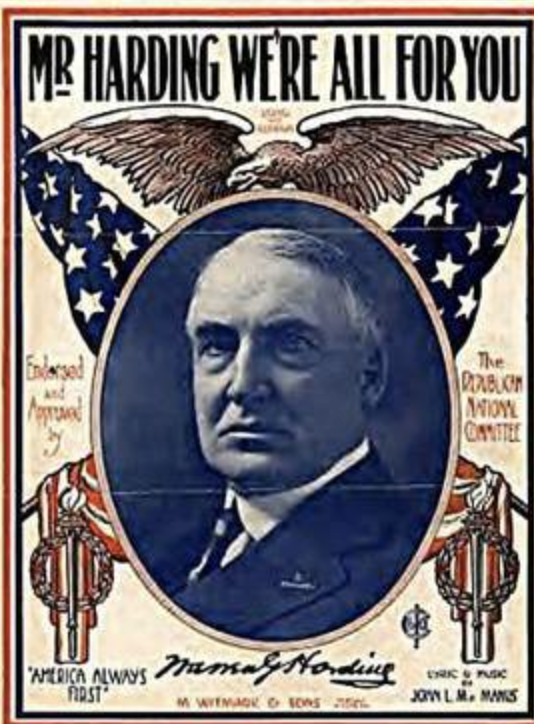
Just how much has Biden moved into the shadows, relative to Trump? According to data provided to Wake Up To Politics by Factbase, Biden has said about 50,000 less words in public than Trump had by this point in his term: in Trump’s first 85 days, he said a total of almost 220,000 words in public, compared to almost 168,000 for Biden.
Per Factbase, Biden has also held less events (142 vs. 155), sat for significantly less interviews (6 vs. 17), and — unsurprisingly — sent dramatically less tweets (151 vs. 430) than Trump had at this point in his term.
He’s also pushed back more than one traditional presidential rites upon entering office, waiting longer than any president in the modern era to hold his first press conference (he’ll hold a second one today) and longer than his six direct predecessors to deliver a speech to a joint session of Congress (his is scheduled for April 28; they all did it in February).
As a result, Biden has simply occupied less of the national conversation. Here’s one measure to show that: according to Stanford University’s Cable TV News Analyzer, the cable networks spent a collective 11,000 minutes talking about Donald Trump during his first 85 days in the Oval Office. Those same networks have spent about half as much time — 6,000 minutes — talking about Joe Biden over the same time span.
None of this is to say that Biden hasn’t had an active presidency: he has. Just this week, he announced plans to end the war in Afghanistan and to impose major sanctions on Russia. But, after a flurry of executive actions in his first week, the focus of policymaking in Washington has slowly shifted to the other end of Pennsylvania Avenue.
While the White House was the center of activity under Trump, it is Capitol Hill that is buzzing now, as lawmakers conduct bipartisan negotiations on infrastructure, minimum wage, gun control, and a range of other issues.
The future of the Biden agenda is largely out of his hands, as is the possibility of bipartisan cooperation, which he campaigned on and promised in his inaugural address. Moderate Republican senators have grown quickly distrustful of the president’s bipartisan talks, frustrated with his handling of the $1.9 trillion stimulus package. When it comes to infrastructure and other policies, progress is more likely to be made among the bipartisan Senate “G-20” gang than in an Oval Office meeting.

Just how much has Biden moved into the shadows, relative to Trump? According to data provided to Wake Up To Politics by Factbase, Biden has said about 50,000 less words in public than Trump had by this point in his term: in Trump’s first 85 days, he said a total of almost 220,000 words in public, compared to almost 168,000 for Biden.
Per Factbase, Biden has also held less events (142 vs. 155), sat for significantly less interviews (6 vs. 17), and — unsurprisingly — sent dramatically less tweets (151 vs. 430) than Trump had at this point in his term.
He’s also pushed back more than one traditional presidential rites upon entering office, waiting longer than any president in the modern era to hold his first press conference (he’ll hold a second one today) and longer than his six direct predecessors to deliver a speech to a joint session of Congress (his is scheduled for April 28; they all did it in February).
As a result, Biden has simply occupied less of the national conversation. Here’s one measure to show that: according to Stanford University’s Cable TV News Analyzer, the cable networks spent a collective 11,000 minutes talking about Donald Trump during his first 85 days in the Oval Office. Those same networks have spent about half as much time — 6,000 minutes — talking about Joe Biden over the same time span.
None of this is to say that Biden hasn’t had an active presidency: he has. Just this week, he announced plans to end the war in Afghanistan and to impose major sanctions on Russia. But, after a flurry of executive actions in his first week, the focus of policymaking in Washington has slowly shifted to the other end of Pennsylvania Avenue.
While the White House was the center of activity under Trump, it is Capitol Hill that is buzzing now, as lawmakers conduct bipartisan negotiations on infrastructure, minimum wage, gun control, and a range of other issues.
The future of the Biden agenda is largely out of his hands, as is the possibility of bipartisan cooperation, which he campaigned on and promised in his inaugural address. Moderate Republican senators have grown quickly distrustful of the president’s bipartisan talks, frustrated with his handling of the $1.9 trillion stimulus package. When it comes to infrastructure and other policies, progress is more likely to be made among the bipartisan Senate “G-20” gang than in an Oval Office meeting.
Joe Manchin may just have more say over the “Biden agenda” than Biden himself.
But here’s another point to keep in mind: Biden’s relative inactivity has led to him quietly becoming a historically popular president. According to Pew Research Center, Biden’s job approval rating currently stands at 59% — at least a few points ahead of how Americans rated his most recent predecessors at this point in their terms, and 20 points ahead of Trump’s approval rating at this point.
His signature policies, which are also quietly historic, have attracted similarly widespread popular support.
And while pounds of ink were spilled about Trump’s historically high approval rating among Republicans, a recent Gallup poll showed Biden with 98% support among Democrats, a sign of how much he has rallied the party behind him despite loud opposition during the primary cycle.
According to accounts by his former aides, there is nothing former President Trump loved more than dashing off an attention-grabbing tweet and then turning on cable news and watching it grab attention, becoming instant “breaking news.” Biden, meanwhile, has been content to remain on the sidelines of the political and media ecosystem in Washington.
After four years of a national obsession with the White House, Biden has given up the “presidency of our minds.” And, so far at least, it seems the American people are just fine with that.
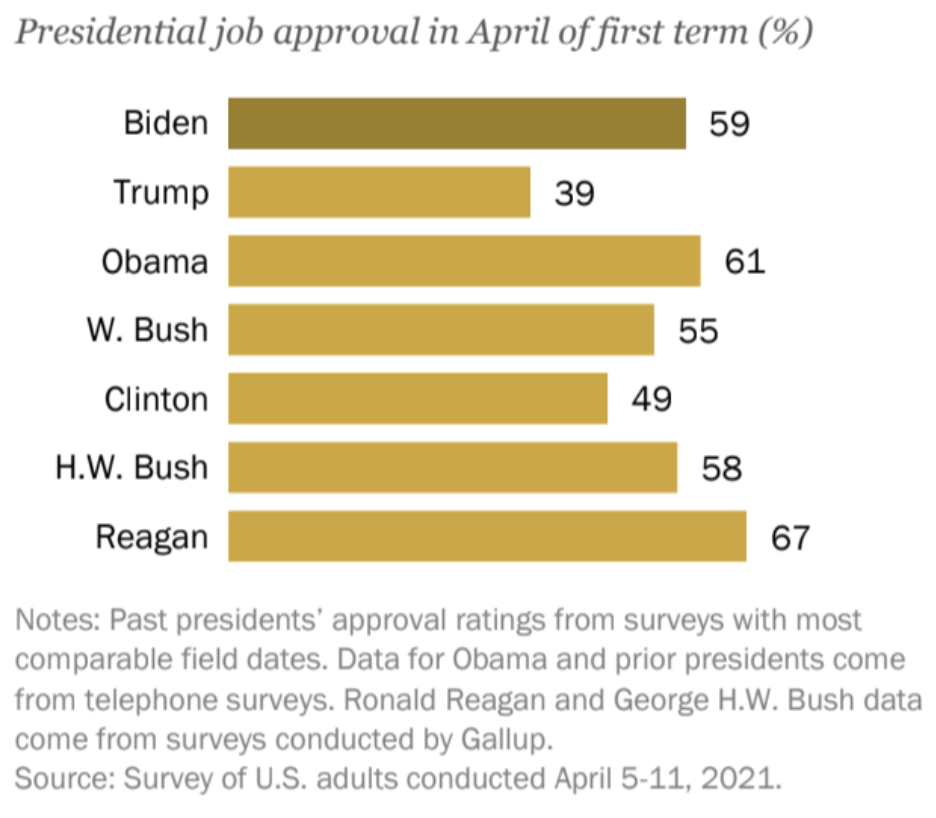
Share with friends, win rewards
I’m committed to keeping Wake Up To Politics completely free and growing only be word of mouth. But to do that, I need your help. Now you can help share WUTP and win cool prizes at the same time.
Below, find your unique referral link: if three of your friends sign up using the link, you’ll get access to an exclusive Zoom Q&A session with Gabe and other members of the WUTP news team! If 10 friends sign up, you’ll also get a free WUTP mug. Thanks so much for your help sharing the newsletter!
Click here for your unique referral link.
Or click these links to share directly to Twitter, Facebook, or email.
Daybook
All times Eastern.
President Joe Biden will receive the President’s Daily Brief at 9:50 a.m. In the afternoon, Biden will host Prime Minister Yoshihide Suga of Japan for his first in-person meeting with a foreign leader since taking office. At 1:30 p.m., Biden and Suga will meet together in the Oval Office. At 2:30 p.m., they will participate in an expanded bilateral meeting in the State Dining Room. At 4:15 p.m., they will participate in a joint press conference in the Rose Garden. Biden will then leave for his home in Wilmington, Delaware, where he will spend the weekend. He will depart at 5:30 p.m. and arrive in Wilmington at 6:25 p.m.
— Vice President Kamala Harris will meet with Prime Minister Suga at 11 a.m. in her ceremonial office.
— White House Press Secretary Jen Psaki will hold a press briefing at 11 a.m.
— U.S. public health officials will hold a COVID-19 press briefing at 10:30 a.m.
The Senate is not in session.
The House will convene at 9 a.m. The chamber will hold an hour of debate on H.R. 1195, the Workplace Violence Prevention for Health Care and Social Service Workers Act, and then vote on the measure. The House will also hold a vote under “suspension of the rules” on H.R. 1482, the 504 Credit Risk Management Improvement Act.
The Supreme Court will meet for its weekly conference.
Thanks for waking up to politics! If you enjoy reading this newsletter, I’d be so grateful if you’d consider donating to help support me and my work. If you want to show off your support for Wake Up To Politics, you can also buy some merchandise.
Also: don’t forget to tell your friends and family to sign up for the newsletter at wakeuptopolitics.com. And if you have any questions or comments, feel free to email me at any time.

